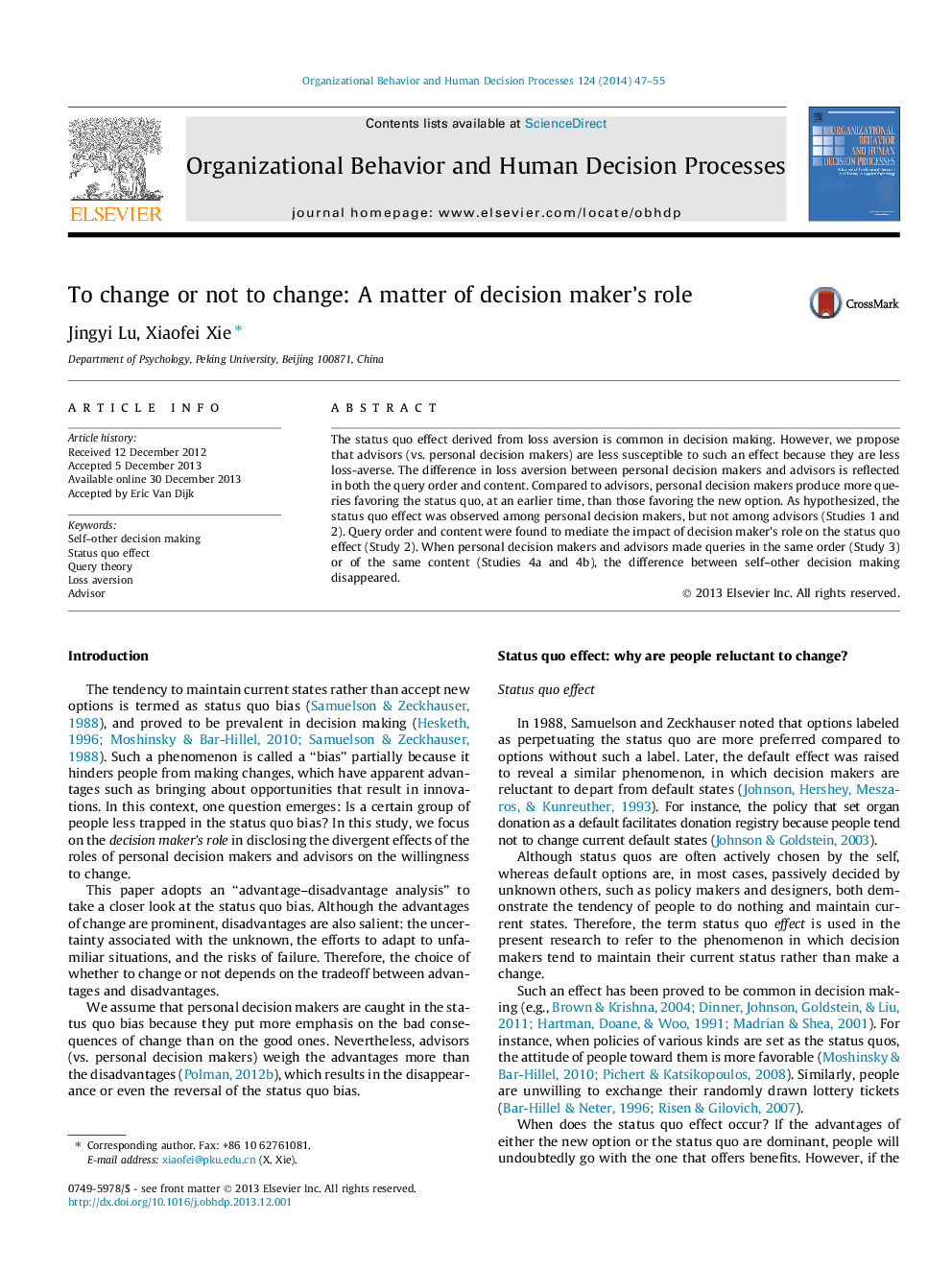| Article ID | Journal | Published Year | Pages | File Type |
|---|---|---|---|---|
| 10439838 | Organizational Behavior and Human Decision Processes | 2014 | 9 Pages |
Abstract
The status quo effect derived from loss aversion is common in decision making. However, we propose that advisors (vs. personal decision makers) are less susceptible to such an effect because they are less loss-averse. The difference in loss aversion between personal decision makers and advisors is reflected in both the query order and content. Compared to advisors, personal decision makers produce more queries favoring the status quo, at an earlier time, than those favoring the new option. As hypothesized, the status quo effect was observed among personal decision makers, but not among advisors (Studies 1 and 2). Query order and content were found to mediate the impact of decision maker's role on the status quo effect (Study 2). When personal decision makers and advisors made queries in the same order (Study 3) or of the same content (Studies 4a and 4b), the difference between self-other decision making disappeared.
Keywords
Related Topics
Social Sciences and Humanities
Business, Management and Accounting
Marketing
Authors
Jingyi Lu, Xiaofei Xie,
